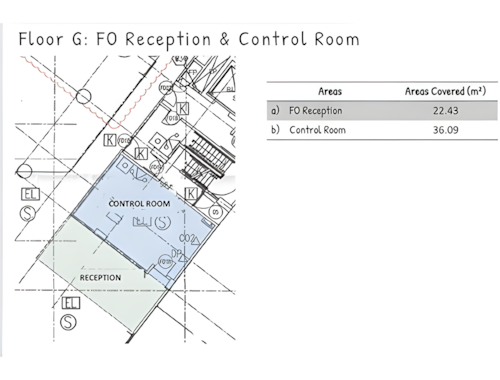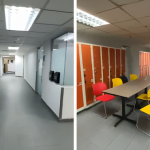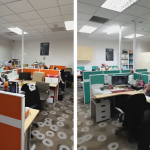
In an earlier post, I touched on why CCTV cameras don’t directly prevent crime but can help identify culprits when strategically placed. This same principle of strategic planning applies to hotel operations—especially when it comes to optimizing space and manpower.
At The Everly Putrajaya, the fire alarm system and CCTV servers were initially planned for B2, near the staff entrance. This setup would have required a 24/7 security presence, meaning at least three staff members plus weekend and holiday relief—an inefficient use of resources.
Beyond cost, I’ve always found it a challenge to keep security guards fully alert while manning a quiet post. Fatigue and boredom often lead to guards dozing off, making the security presence ineffective. Instead, we relocated these systems to a small office space (36.09 m²) directly behind the reception, alongside IT servers. This space was already staffed 24/7 by the Front Office team, making it a natural fit. Meanwhile, the Front Office Manager, Reservations, and Telephone Operators were placed in a separate office 20 meters away.
The Front Office is the only department in a four-star hotel that operates round the clock. By integrating security monitoring with the Front Office, we eliminated the need for additional security personnel at the staff entrance. Now, if an alarm goes off, the receptionist can immediately assess the situation and take action—improving both efficiency and security.
Strategic space planning is key to optimizing operations, reducing costs, and enhancing security. How have you seen space efficiency impact hotel operations? Share your thoughts in the comments!






